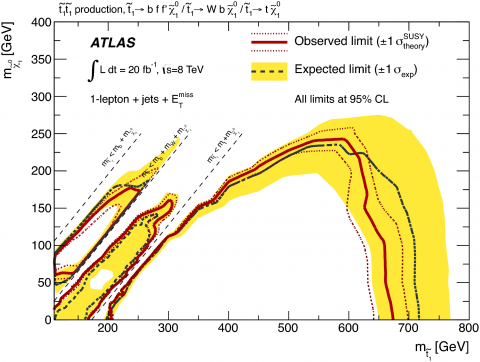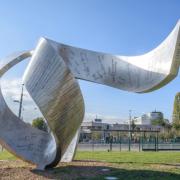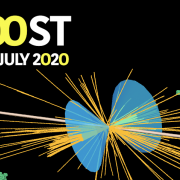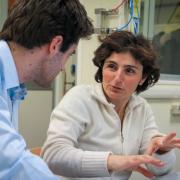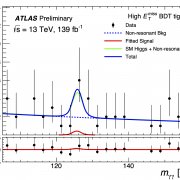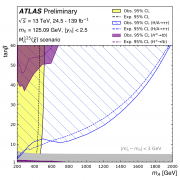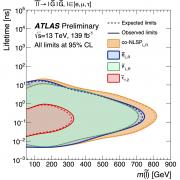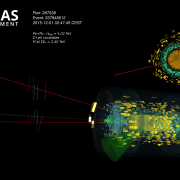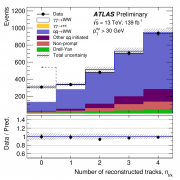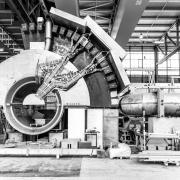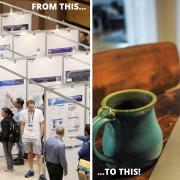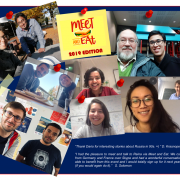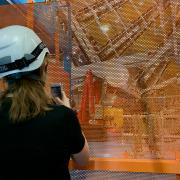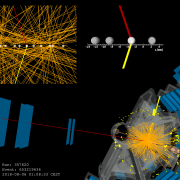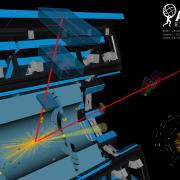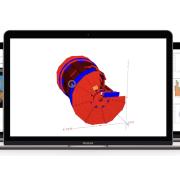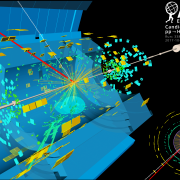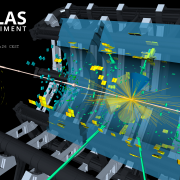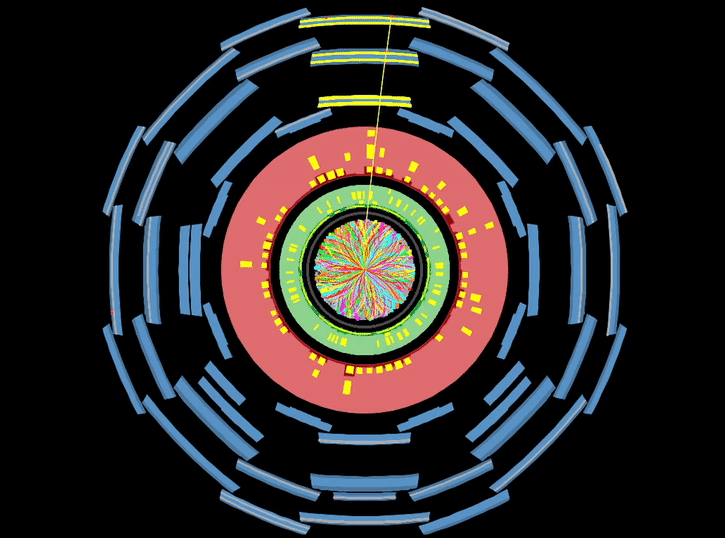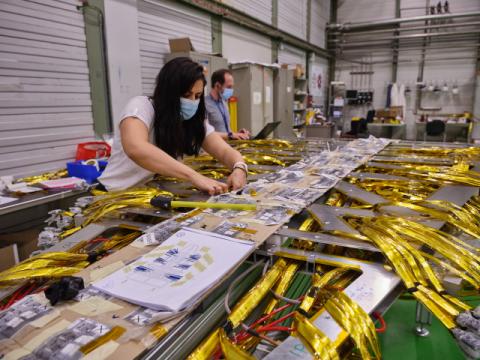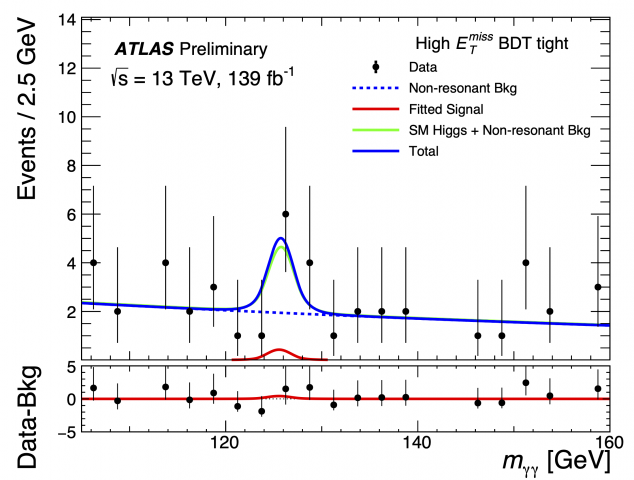Access to Collaboration Site and Physics Results
Updates tagged: “JETM group”
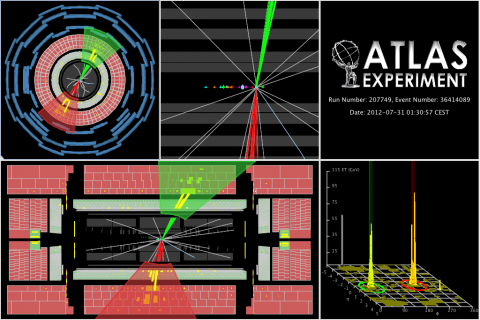
Run 1 search for new massive bosons builds excitement for Run 2
The ATLAS experiment is now taking data from 13 TeV proton-proton collisions. The increased collision energy and rate in these Run 2 collisions will allow physicists to carry out stronger tests of many theoretical conjectures, including several theories that predict more massive versions of force-carrying particles like the W and Z bosons.
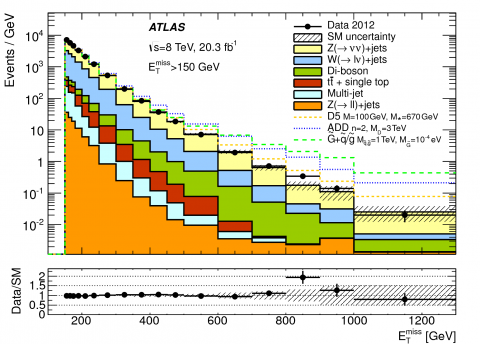
Looking at the Dark side of Matter
The search continues for dark matter, a new kind of matter that doesn’t emit or absorb light. It is assumed to account for the missing amount of mass in our Universe. The total mass in our Universe can be inferred from the observation of gravitational effects of stars in galaxies, and galaxies in clusters of galaxies. However the amount of mass calculated from the observed distribution of light is much less. It is proposed that dark matter makes up the discrepancy as it does not emit light.
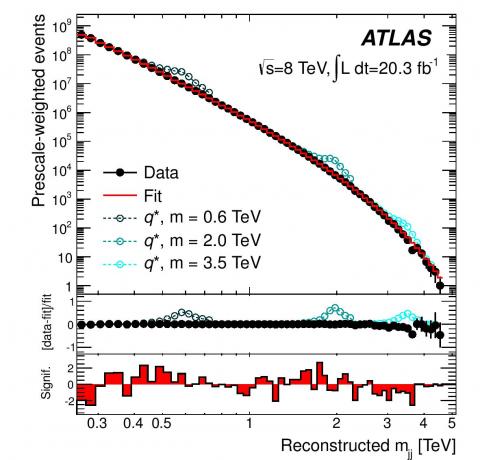
Are quarks fundamental particles?
From decades of discoveries made at particle colliders, we know that protons are composed of quarks bound together by gluons. We also know that there are six kinds of quarks, each one with its associated antiparticle. But are quarks fundamental? ATLAS searched for signs that quarks may have substructure in its most recent data, collected from the LHC’s proton-proton collisions in 2012.
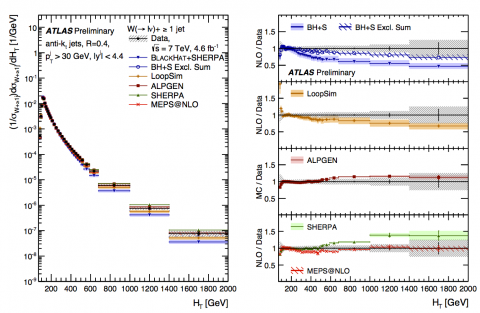
The production of W bosons in association with jets
The production of a W boson in association with “jets” of particles initiated by quarks or gluons (“W+jets” events) is an important signature to test quantum chromodynamics, the theory of strong interactions. A new measurement reported by ATLAS focuses on studying the properties of the jets in a large data sample of W+jets events.
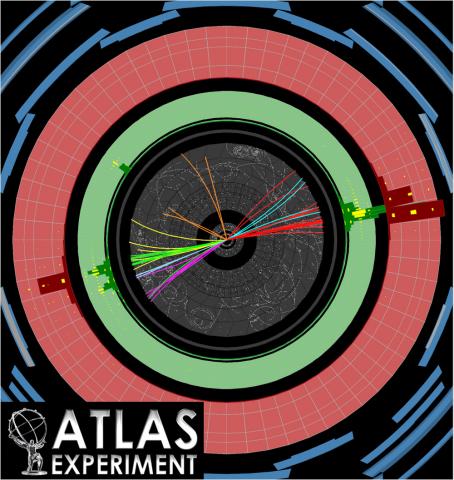
A Search for New Physics Processes using Dijet Events
The ATLAS Experiment has extended the energy frontier of searches for new particles and new processes beyond those of the Standard Model by studying collision events with so-called "dijets".


